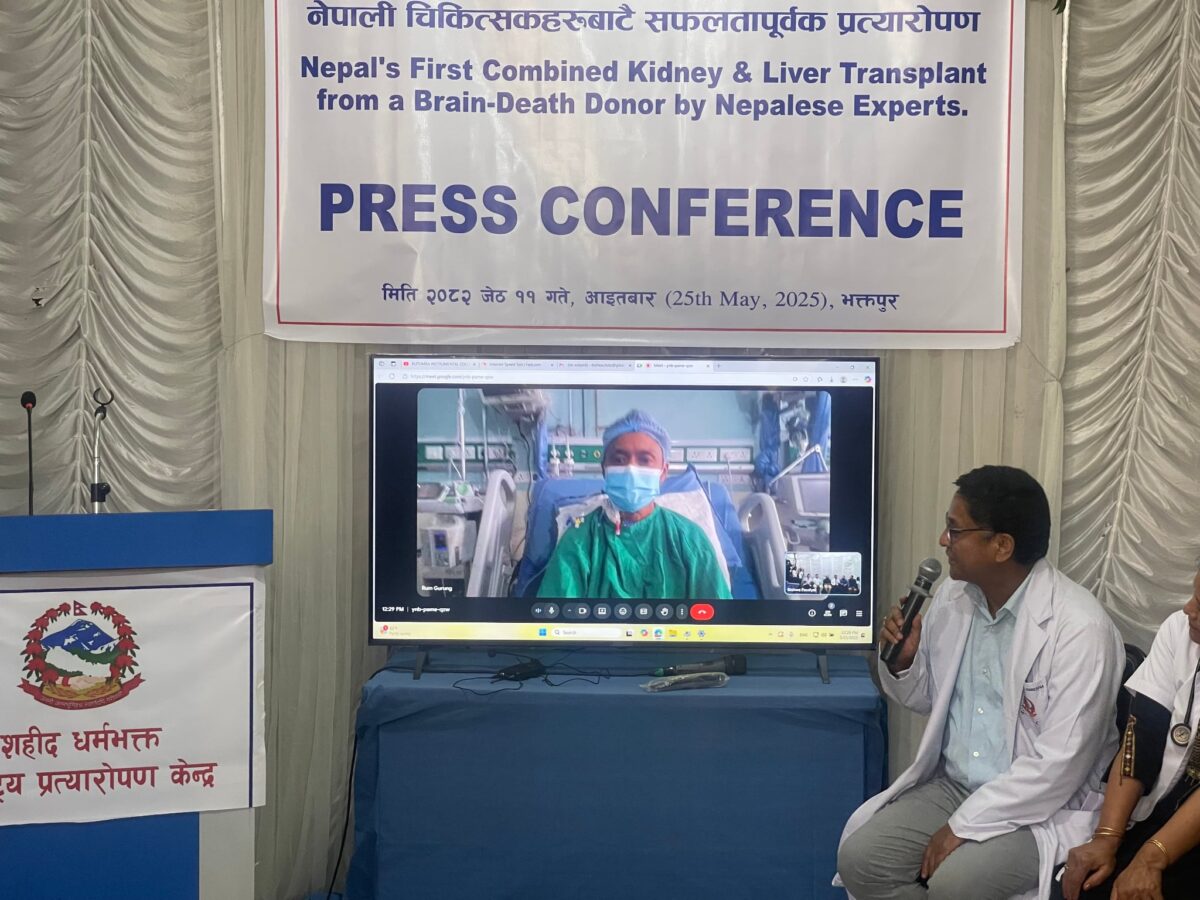

KATHMANDU: Two individuals have received a second chance at life after undergoing kidney and liver transplants from an 18-year-old youth who died in an accident.
The Dharma Bhakta National Transplant Center in Bhaktapur performed liver and kidney transplants from a single brain-dead donor to two recipients.
According to Dr. Pukar Chandra Shrestha, head of the center, the liver and one kidney were transplanted into a 53-year-old man, while the other kidney was transplanted into a 40-year-old woman.
“This is the first time in Nepal that organs from one individual have been transplanted into two different patients,” Dr. Shrestha announced during a Sunday press conference. “Both recipients are currently recovering well.”
The deceased youth was critically injured in a motorcycle accident on Jestha 1 (May 15) and admitted to Kathmandu Medical College (KMC) in Sinamangal.
After his death, his family consented to donate his liver and kidneys, enabling the transplant surgeries the same day.
Dr. Kalpana Ghimire from KMC coordinated with the donor’s family to facilitate organ donation after brain death was declared.
The organs were removed promptly, preserved with artificial oxygen, and kept on ventilators. Organs must be transplanted quickly — liver within six hours and kidneys within nine hours after brain death — to remain viable.
“The sooner organs are retrieved and preserved, the higher the chances of success. The donor’s family was very cooperative throughout this process,” said Dr. Shrestha.
Transplant surgeries for both recipients began immediately upon receiving the organs. After a week of intensive care, both patients have successfully undergone the transplants.
This marks the 12th kidney and 4th liver transplant from brain-dead donors at the center. So far, 34 liver transplants have been performed there, involving a team of around a dozen doctors.
The center began liver transplants in 2073 BS (2016) with South Korean experts, and Nepali doctors led by Dr. Shrestha performed the first fully Nepali-led transplant in 2075 BS (2018).
Organ transplantation is considered highly complex. Former Prime Minister KP Oli underwent a kidney transplant in Nepal twice.
Kidney transplants from brain-dead donors started in 2074 BS (2017) at the center.
Dr. Shrestha explained that organs from one brain-dead donor can save up to eight lives — two kidneys, two lungs, one liver, one heart, one pancreas, and a small intestine can be transplanted.
So far, the government center has performed 1,421 kidney and 34 liver transplants.
Both transplant recipients expressed gratitude via video messages from the ICU to the doctors and the donor family. The 53-year-old male recipient said, “I had been waiting for a kidney for three years but never found one.”
Organ donation is only possible with consent from donor families. The legalization of organ donation after brain death has enabled such life-saving procedures in Nepal.
Health Minister Pradip Paudel announced a government incentive of NPR 200,000 to families of brain-dead donors and NPR 75,000 to hospitals for organ donation facilitation.
“This initiative encourages families to donate organs after sudden death,” said Dr. Shrestha. “Organs that would otherwise be wasted can save other lives through donation.”
The government established the transplant center in 2068 Falgun (February 2012) targeting patients with organ failure. The center initially provided dialysis and started kidney transplants on 2069 Magh 6 (January 19, 2013).